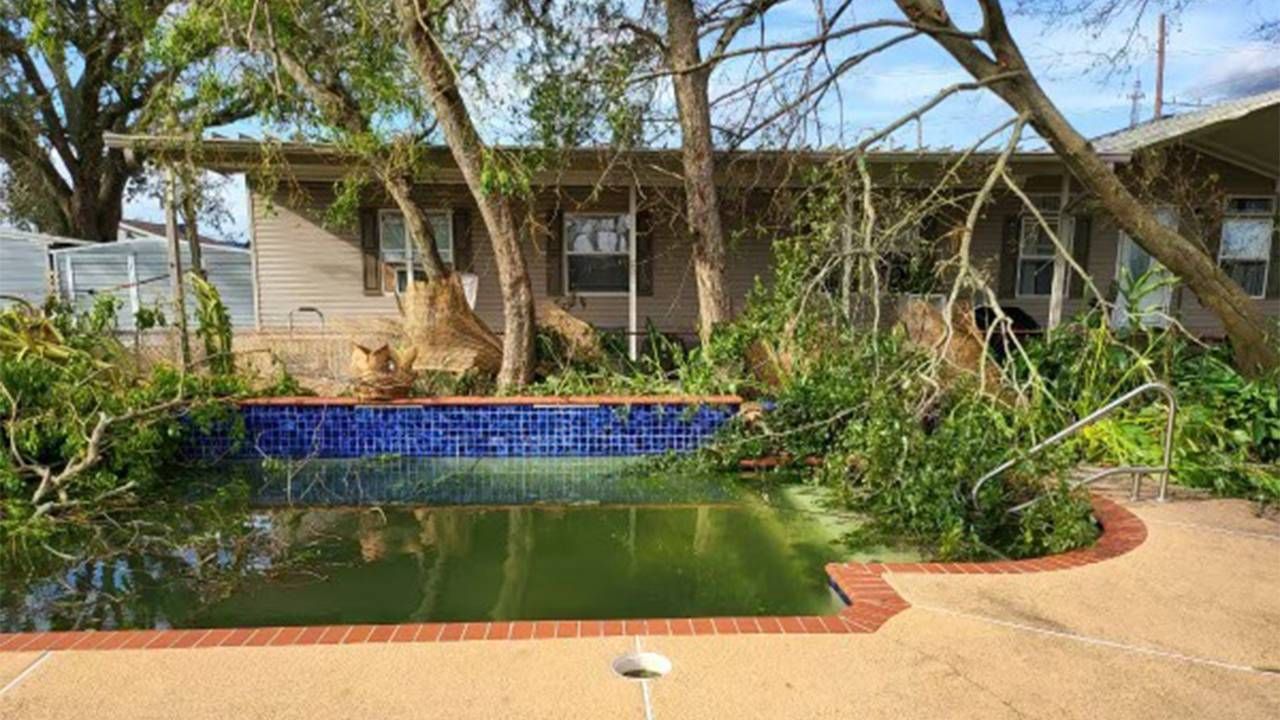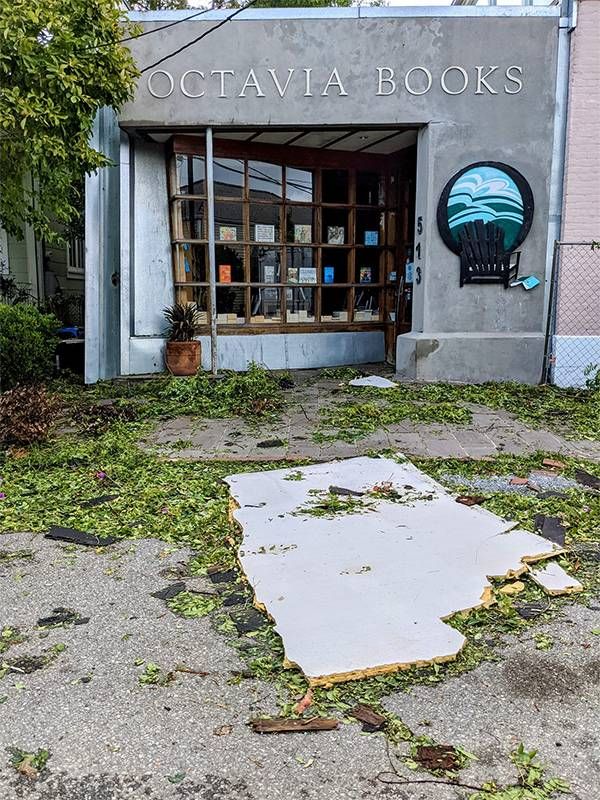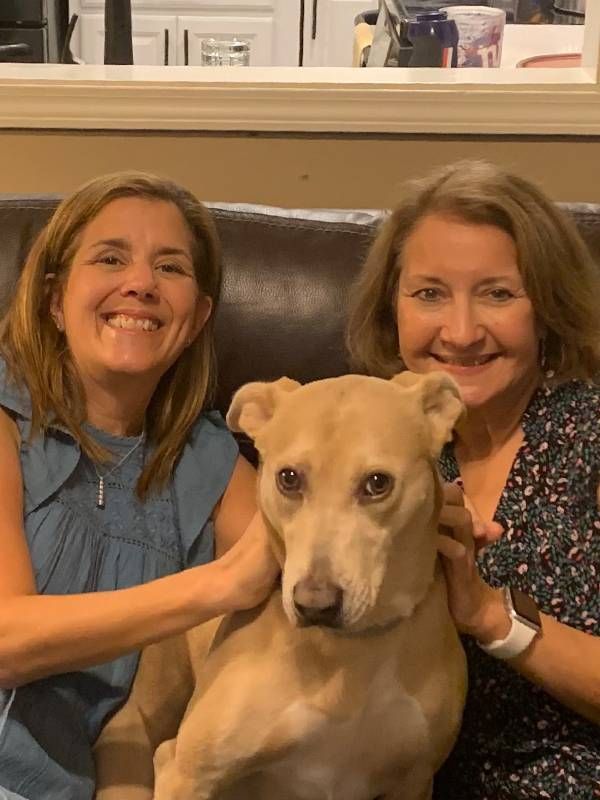Why Older Hurricane Ida Victims Wrestled With Whether to Evacuate
These New Orleans residents explain that their decision wasn't as clear-cut as in the past
Editor’s note: Rebecca Theim lived in New Orleans from the late-1980s through the mid-1990s and has maintained friendships and ties to the city since. She evacuated in advance of a projected hit by 1992's Hurricane Andrew and wrote about what Hurricane Katrina did to her former colleagues and employer in her 2013 book, "Hell and High Water: The Battle to Save the Daily New Orleans Times-Picayune."

Five days after Lori Lyons, her husband Marty Luquet and their rescue poodles, Lola and Pepper, evacuated their Norco, La. home (25 miles west of New Orleans) ahead of Hurricane Ida, Lyons posted a meme to Facebook: "I'M GETTING TIRED OF BEING PART OF A MAJOR HISTORICAL EVENT."
Lyons, 59, a journalism and multimedia teacher at a private school in nearby Reserve, and her family evacuated for six storms in the 16 years since Katrina ravaged the New Orleans area and the Mississippi Gulf Coast, killing 1,833 and destroying or damaging 800,000 homes.
This time, because so many relatives and friends with whom her family would've stayed also lived in Ida's anticipated "danger zone," the decision to evacuate wasn't as clear-cut for Lyons as it had been in the past.
The Ida Decision: To Evacuate or Not to Evacuate?
"The main reason we were reluctant to leave at first was that we had nowhere to go," Lyons said shortly after she, her husband and their dogs made their way from their original temporary home at a Motel 6 in Natchitoches, La. — the community where their daughter, Lora, attends Northwestern Louisiana University — to Lyons' sister's home in Baton Rouge, 81 miles from New Orleans.
"The main reason we were reluctant to leave at first was that we had nowhere to go."
"We left home not knowing where we would end up. I just lucked out and got a room [at the Motel 6] while we were driving. And they honored our reservation," said Lyons. "There were seven people in line when we got there."
But the decision by residents to stay or go in the face of incoming storms has become both more frequent and more fraught. Factors weighing into the decision include: fear about how much even fortified levees can prevent another catastrophe; large swaths of southern Louisiana remaining outside the earthen embankments and the more frequent and more severe storms that are a byproduct of climate change.
Several of the area's inhabitants in their 50s and 60s, with evacuation options, interviewed for this story came to very different conclusions as Ida approached.
"Katrina definitely affected my decision to leave," said Barri Bronston, 62, assistant public relations director for Tulane University. A New Orleans native who lives in suburban Metairie, Bronston evacuated to her sister's Atlanta home two days before Ida made landfall on the 16th anniversary of Katrina. "I've developed somewhat of a rule of thumb: Once a storm hits a Category 3 and is headed in our general direction, I don't waste time debating with myself as to whether I should go. I just go."
Ida made landfall in Louisiana on Sunday, Aug. 29 as a Category 4 storm, with sustained winds of 150 mph. Temperatures in the region have hovered around 100 degrees since then.
Choosing to Stay
In deciding whether to stay or evacuate as Ida neared, Tom Lowenburg — owner of Octavia Books, one of New Orleans' preeminent independent bookstores — assessed the direction the storm was traversing and the city's levees. Although Lowenburg and his wife, Judith — both in their 60s — were out of the city for five weeks after Katrina, they chose to stay for Ida.

The couple de-camped for the nearby home of Lowenburg's 92-year-old mother because it had solar panels that kept the refrigerator and fans operational. Tom Lowenburg's brother, sister and mother evacuated to Mobile, Ala. where Lowenburg's mother owns a modest second home. The continued lack of electricity sent Judith Lowenburg to the home of friends in Ohio a few days later.
Both Octavia Books and the Lowenburgs' Uptown home sustained some roof damage, and only regained power Tuesday morning Sept. 8 — 10 days after Ida hit.
"Being without power in this heat, we're talking about a million people without power," Lowenburg said. "That's a huge hardship. People dependent on electricity to operate medical devices, people who have heart conditions, can die of heatstroke. It's one thing to get hot during the day, but if you can't get cool at night, you can die of heatstroke."
The New York Times reported that, as of Sept. 5, five people died in eight apartment buildings for older residents that the New Orleans Health Department said were unsafe. That followed the deaths of seven who'd been moved from New Orleans nursing homes to a warehouse.
"I am deeply concerned to have seen the conditions of these private apartment facilities where some of our most elderly and vulnerable community members reside," the Health Department's chief, Dr. Jennifer Avegno, told The Times.
Ida's Tragic Effect on Vulnerable Residents
David Morris, part of the New Orleans agency Resilient Nola, said to New York Times reporters: "Evacuating is extremely taxing, extremely stressful from a physiological standpoint, especially on more vulnerable communities."
New Orleans officials have converted part of the city's convention center into a medical shelter for residents with health challenges because their homes lacked power, including ones requiring oxygen.
"It was important for us to re-open as soon as possible after Katrina. People came in and really appreciated us being there."
Frustration has been high across the New Orleans region since Ida aimed at Entergy, the regional power company. Although Entergy reported as of Monday morning Sept. 6 that electricity had been restored to more than half its nearly 1 million customers, widespread local outages are still being reported.
Some residents say electricity returned briefly, only to go out again. I had dozens of friends who still didn't have power the evening of Labor Day, although more were reporting via social media that electricity was being restored Tuesday, 11 days after the storm.
Although bookstores aren't generally regarded as essential businesses, Lowenburg said it's important to Judith and him to be open as quickly as possible after the area's storms.
"We like to be open for business reasons, but more than that, if it's possible for us to be open during hard times, it's a big help to people," he said. "It was important for us to re-open as soon as possible after Katrina. People came in and really appreciated us being there."
Bronston, Lowenburg and Lyons all agreed that evacuating at they grow older is more arduous.
"It's really hard to leave everything you own behind," Lyons said. "I have a ton of family heirlooms, scrapbooks, baby books. What do you take? What do you leave? I couldn't decide, so I just took nothing."
Although she feels up to the challenge of evacuating now, Bronston wonders about the future.
What About Future Storms?
"At sixty-two, I can still handle the evacuations," she said. "But I'd be lying if I said I didn't think about what it will be like in my seventies or eighties."

Bronston expects that her daughter, Sally, who lives in suburban Washington, D.C. and is engaged, will insist that her mother evacuate to be with her. "I'd be happy to go there, especially if there are grandchildren in the picture," Bronston said.
I have several friends who had parents, older relatives and friends who died in the years immediately after Katrina. Their families attribute the deaths to the strain, chaos and disruption of the storm, the losses and the evacuations.
"If there is one thing we have found repeatedly in our research, it is the simple fact that older adults and hurricanes do not mix," Brown University School of Public Health faculty member David Dosa, said in a 2018 interview.
He was referring to research from he and colleagues at Brown and University of South Florida into the effects that hurricanes have on residents of nursing homes and assisted living facilities. They found that many more area people died after hurricanes than in non-hurricane years, in numbers higher than death certificates issued after storms indicated.
A 2019 article by Boston University sociology professor Deborah Carr, in The Journals of Gerontology, put things bluntly: "Hurricanes have far reaching impacts for all people, yet these impacts are particularly devastating for older people, especially those already suffering from poor health and financial insecurity…The physical wear-and-tear of evacuation can hasten the fatal effects of pre-existing health conditions like heart disease or weakened immune systems."
But none of my New Orleans friends in their 50s and 60s are giving serious thought to relocating from the area.
"These storms are natural disasters, but they're also, in part, manmade disasters, and we have to face what's happening with global warming," said Lowenburg, who is expanding his bookstore to double its size.
"What happens here affects the rest of the nation. This is not separate from what's happening elsewhere in the country," Lowenburg said. "This storm hit not only here, but also New York."
Looking to the future, he added, "I think we just have to take each one as it comes." Lowenburg said he is planning to stay in New Orleans for a while.

